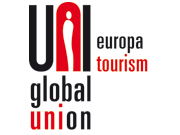A new political framework for tourism in Europe - EU Communication

The European Commission adopted on 30 June 2010 a Communication on tourism that aims to keep Europe the world's top tourist destination. In particular, the Communication suggests a new consolidated policy framework for the future of the European tourism and a series of initiatives at European level to be implemented in close cooperation with representatives of the public and private tourism sector.
Tourism plays an important role in our economy. It comprises 1.8 million enterprises, many of these being small and medium-sized businesses. It also caters for 5.2% of employment and contributes to more than 5% of European GDP.
The coming years offer a number of challenges and opportunities that need a concerted approach at a European level, while respecting the different features present in Member States at all levels. European destinations face increasing competition from other global destinations. On the other hand Europe can also attract tourists from emerging markets willing to spend their vacation over here. The current demographic trend will mean that in a few years time we will have more aged tourists – our tourism products and our infrastructure has to be well-catered for that. Our tourism products also need to be more sustainable, thus taking into account commitments related to climate change and dependence on water and energy for example.The ever-developing information and communication technologies also offer new opportunities that need to be tapped.
To keep Europe the world's top tourist destination, the Commission communication proposes 21 actions including:
1. Improve the competitiveness of the tourist sector in Europe.
- Innovation needs to be boosted so that the sector and its enterprises can adapt to new trends in consumer behaviour and overcome fixed patterns in the sector. In this context, the European Commission supports the idea of a joint "ICT tourism platform" among major tourism stakeholders (travel agencies, hotels, etc…)
- Extension of the tourism season. Facilitate a form of exchange programme for the young, elderly, families with economic difficulties and disabled people to travel during the low season. Secondly, an information exchange mechanism at European level could help to better coordinate school holidays among the Member States.
- Improving the tourism socio-economic knowledge is needed to develop better coordination of ongoing research activities in the field of tourism. A virtual European Tourism Observatory could provide, in the medium term, a network for the coordination and analysis of tourism research, which could also act as a repository of EU-wide information on developments in the tourism industry.
2. Promote the development of sustainable, responsible and quality-oriented tourism
- Facilitate best practice exchanges among the networks of regional and sustainable destinations with a view to develop sustainable management indicators.
- Develop a "Quality Tourism" label, to reward achievements in raising the quality of the services provided by European businesses and destinations.
- Elaborate a label on the basis of sustainable management indicators to promote tourist destinations respecting environmental, social and economic criteria.
- Propose a Charter establishing criteria for a sustainable and responsible tourism on the basis of which a European price will be awarded to tourist companies and destinations.
3. Consolidate the image and the visibility of Europe as a set of sustainable and high quality destinations
- The creation and promotion of a "European brand", in close cooperation with the Member States, will help to better stand out from other international destinations.
- Improved cooperation with national organisations and the European tourist industry to promote European tourism products via the portal visiteurope.com.
4. Bolster the integration of tourism in the EU policies and financial instruments
- Tourism is inevitably interlinked with other policies. For this reason, the Commission will improve integration and coordination of policies impacting on tourism, such as passengers' rights, consumer protection and the internal market.
The English, French, Italian and German versions of the communication are already available and published on the website:
http://ec.europa.eu/enterprise/sectors/tourism/files/communications/communication2010_en.pdf
http://ec.europa.eu/enterprise/sectors/tourism/files/communications/communication2010_fr.pdf
http://ec.europa.eu/enterprise/sectors/tourism/files/communications/communication2010_it.pdf
http://ec.europa.eu/enterprise/sectors/tourism/files/communications/communication2010_de.pdf

